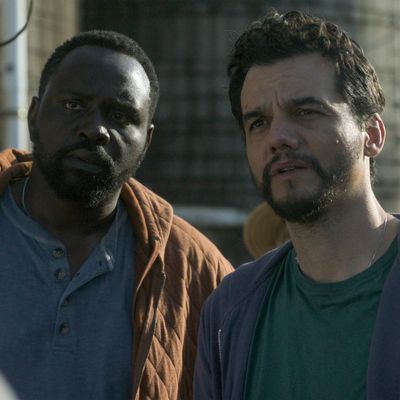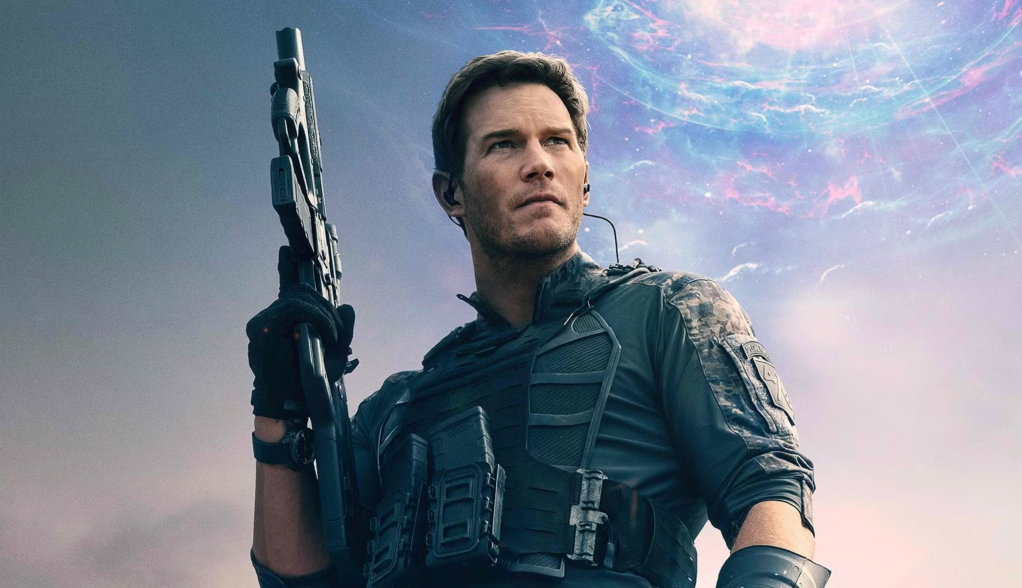So far, I’ve been feeling ambivalent about Dope Thief ’s efficient but visually generic use of black and white when cutting to Ray’s flashbacks. The show excels in so many other areas, so could we not have gone a little farther in the visual language here? But my ambivalence is greatly tempered by how much this episode excels at using that established language to clearly meet its own thematic ends. “Fear of God” is bookended by a father and a son in a car.
Fighting for survival. The opening fight is the Cold War to the end scene’s hot one — a flashback of a young Ray in the car with his dad as the old man is pulled from his vehicle and beaten up off camera by a vicious gang of street cops. They search the car with Ray inside and find nothing.

“This is what these motherfuckers do,” says a battered Bart to his son. “They step on you. ‘Good and bad,’ ‘right and wrong,’ those are made up by people who never had a gun put to their head.
” The hard lesson of life that most Americans with even a modicum of privilege will never learn. The German playwright Bertolt Brecht put it this way: “First we feast, then comes morality.” In the meantime, you “take the hit, and you keep that mouth shut.
” The young Ray winces as he pulls his father’s stash from underneath his coat, etched and sealed in his memory as the moment his father doomed him to a life on the run. Memories, both fresh and long-held, impinge on the present of our main characters. The shot of pain that comes every time a war-wound memory materializes in a familiar place, sound, vibration.
Every action has one of two reactions : fight or flight. Triggered by the fresh memory of the man he killed in the episode two shootout, Manny soothes his guilt by dragging Ray to an AA meeting, coming as close as he can to confessing his sins without actually saying it (a well-timed cough from Ray helps — the re-configured buddy-cop energy emanating from Henry and Moura remains a highlight of my week). Without the fog of opiates to ease his pain, nor the good sense to lay low when he’s a functioning (debatable) upright, daylight operator.
Ray remains fixed on the task at hand, and, to quote my favorite amateur private detective , “new shit has come to light!” From the front page of the Metro , they discover that Jack, who up to now they only knew as the guy Rick killed in the robbery, was a DEA agent, one Ray figures for dirty and deep into some off-the-books shit. What’s more, the accompanying two-dollar bill that came with the stash has some numbers written on it. Ray figures it’s a claim ticket of some kind.
Elsewhere, Mina picks up on the same clue — the mounting dual rhythm of our two leads unknowingly working the case from either side, proving another pitch-perfect narrative device as the weeks go on. While searching for clues in Jack’s home garage office (via drive-by non-confessional chat and, in so many words, a mutual acknowledgment that they’d both been lied to by the same man with whom they shared half a life), Mina finds the old “second cell phone” with a two-dollar bill attached. “Nice to finally meet one of your fucking informants,” she whispers.
She makes contact with the informant on the other end via text and finds the 4-digit number written on the bill. It was a joy to see recurring criminal-with-eyeliner-giving-former-punk-bassist-character actor Peter Greene show up at the bar as Jack’s old contact. Greene and Marin Ireland make an incredible clash of wills, wits, and energies.
Unfortunately, Mina plays her hand too strong in the end, leaving the nameless messenger open to calmly and clearly give her a better idea of just how powerful and connected his boss is. “I’m so far ahead of you, sweetheart. We all are.
” Having also found a folded picture of herself and her deceased daughter in Jack’s garage, Mina finds herself adrift in a painful vortex of memory, and the plot is thickening at an accelerated rate. Jack had told his wife that Mina “could survive anything” (“It’s a funny way to admit you’re in love, isn’t it.”), and he’s proven right in the next scene when Mina, on the verge of taking herself out of the picture, walks the lone wolf’s path to the only lifeline available in the moment.
It’s clear from the get-go that making the call was more than enough, but the brief interlude of honest empathy from the responder on the other line and Mina’s cry for help from the depths of solitude becomes a heartfelt triumph that’s more than emotionally earned. Let’s check back in on Son Pham, who, in the last episode , was arrested outside his daughters’ school. Once he’s in their custody, the feds don’t waste any time making him call Ray.
It’s a classic bit of crime-cinema ham for the genre heads when Son speaks to Ray over the phone in code with the cops listening in and puts a bunch of numbers into his little story, which leads Ray to spell out the letters “DONT TALK.” But to what end? What worth is there in Son protecting Ray’s location at this point, other than a genuine favor to a business associate-turned-friend, if that’s how Son sees him? Threads for an episode to tug on. ‘Till then, thanks for the memories .
.. an apt tune for this week’s story, oh so subtly spliced into our first post-coital scene with Ray and Michelle.
After an impromptu meeting outside the courthouse, where the pair establish mutual respect and underlying attraction for one another, Michelle takes Ray to a Quaker meeting to establish trust. Sitting in silence, Michelle stops Ray’s fight-or-flight-drive, twitching leg, unclenches his ever-strained fist, and soothes him with a soft touch of the arm. Tender loving care he hasn’t let himself feel in a lifetime.
“You wouldn’t even be messing with me unless you wanted to see how close you could get to the fire, right?” Ray says defensively, lying in bed, pushing away Michelle’s gentle but firm request to look closer at the wound on his shoulder. She tells him the defining story of her job, how once she’d successfully secured the release of a poor drug-smuggling couple who turned out to be violent criminals, she stopped looking at her clients as people and addressing the case as a case alone. No personal investment.
That is until Ray walked through her door. “I saw someone who was trying so hard to be a good person and had no idea what that meant.” But will that invitation to keep exploring the impulse to “do the right thing” be enough to catapult Ray out of fight-or-flight mode and among the living? Only time will tell.
Meanwhile, Manny keeps them in the prison of memory, dragging Ray to Amish country on the next leg of his doing-the-steps sidequest. “Brother, my soul, right now, is the only emergency.” He’s trying to bring flowers to the graves of the two boys they found killed at the Loebseck house.
This doesn’t go over well with the farmers on the scene, but the confrontation gets Ray and Manny some key information. Apparently, the two Amish boys who were killed were running as couriers for the mysterious Ghostface-voiced boss’s COVID contingency meth trade, and one of them left behind another two-dollar claim ticket. At the top of the episode, Bart tells young Ray that being a man means taking the hit and keeping your mouth shut.
Sure enough, Ray takes the hit like a champ when a mysterious assassin emerges from the shadows and fires a gnarly one off in his leg. But the assassin is foiled by none other than Bart, now under house arrest. Ray, in searing pain, wolfs down a mouthful of the neighbor’s fruit cake he found on the stoop earlier that day as his dad shuts the garage behind them.
“Fuck that’s good,” Ray moans. Translation: “First we feast, then comes morality.” By submitting your email, you agree to our Terms and Privacy Notice and to receive email correspondence from us.
.
Entertainment

Dope Thief Recap: Taking the Hit

Ray and Mina are starting to piece together clues from their respective sides of the case.














